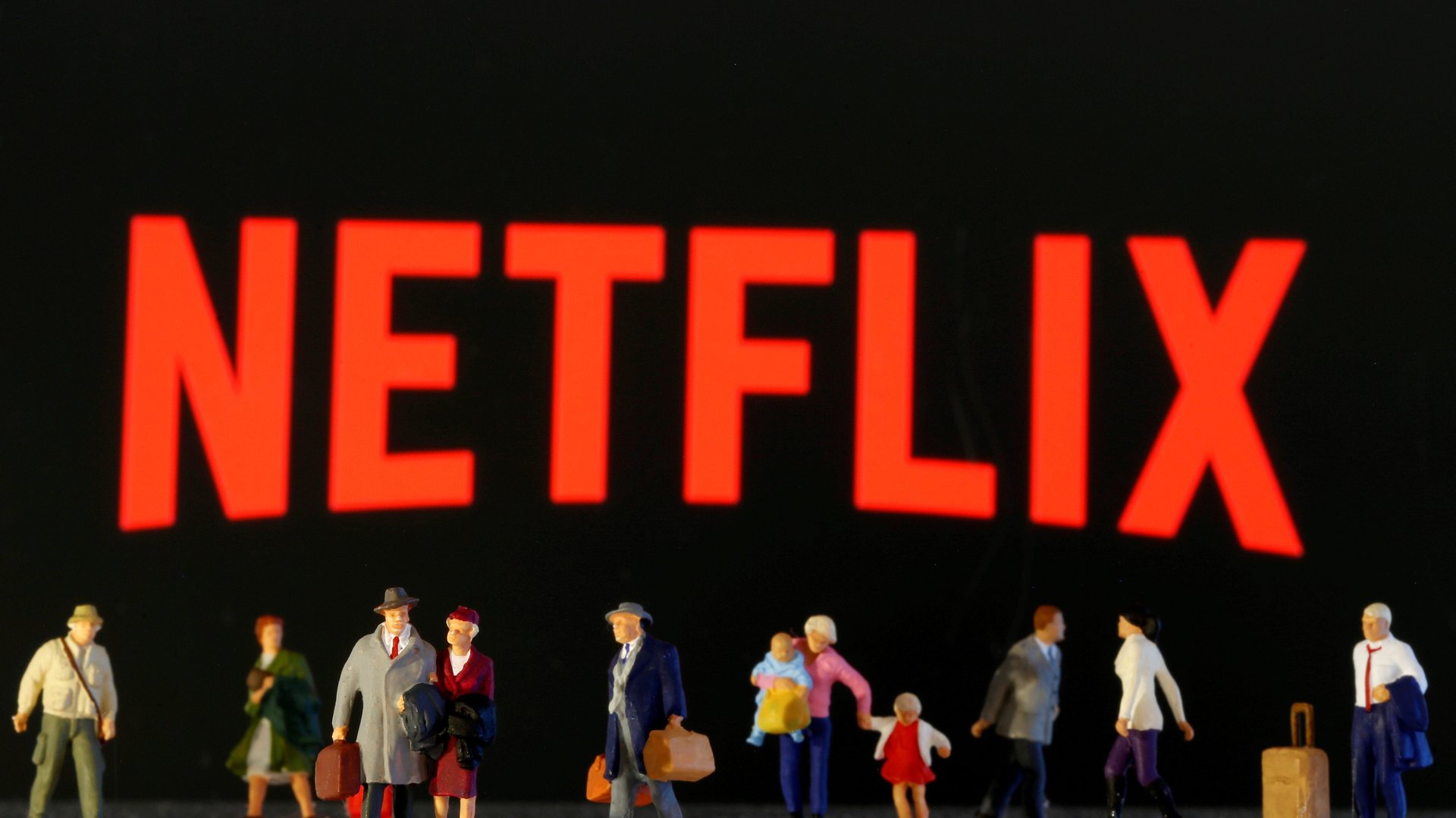Is it time for Netflix subscribers to go on strike?
Two Northwestern University researchers have a plan to torpedo Netflix’s recommendation algorithm. They just need 30% of Netflix users—that’s about 55 million subscribers—to band together and delete their data.


Two Northwestern University researchers have a plan to torpedo Netflix’s recommendation algorithm. They just need 30% of Netflix users—that’s about 55 million subscribers—to band together and delete their data.
This isn’t an elaborate academic troll. The researchers call this form of collective action a “data strike,” and say it might help average internet users gain some leverage against major tech companies. While they used Netflix as an example, the tactic could also work against other giants like Facebook, Google, or Amazon.
The idea underpinning the computer scientists’ proposal is that consumers’ digital data is a form of unpaid labor. Every time you use the internet, tech companies track and record your behavior—what you watch, buy, read, and “like.” They use that information as training data to fine-tune the powerful algorithms their businesses depend on.
“The way we see it, every customer of a tech company is in a sense an employee of that company, because they are generating the data that make things run,” said Nick Vincent, a Northwestern PhD candidate who studies AI ethics. “That’s a source of potential leverage.”
Traditionally, a consumer’s leverage is limited to voting with their feet. But thanks to privacy laws like Europe’s GDPR, users have increasing power over their digital footprint. Not only can you declare a boycott and cancel your Netflix subscription, but in a growing number of jurisdictions, you can also deprive a company of your precious data.
Several so-called data unions have sprung up in recent years to argue that users should be getting paid for their digital labor. Vincent, along with his advisor Brent Hecht, an associate professor who leads Northwestern’s research on AI’s societal impacts, wrote a paper last year laying out how the digital masses might organize to bargain for concessions from tech companies.
“It’s about helping users have more power in this relationship,” Hecht said, which “can be used for all sorts of purposes, whether it’s to encourage better privacy practices, to encourage greener operations, or to encourage some sort of economic outcome.”
According to Vincent and Hecht’s simulations, if 30% of Netflix users were to demand that their data be deleted, the streaming giant’s recommendation algorithm would lose half its predictive power. They estimate that would knock Netflix’s ability to target content to specific users back to where it was 20 years ago.
In a follow-up study, which is still under peer review, the pair propose taking this tactic one step further: Before deleting their data, users could request a copy of it (perhaps using a tool like Google Takeout or Facebook’s data downloader) and hand it over to another tech company that’s more aligned with their values. “Your goal is to reduce the performance gap between the two as much as possible,” explained Vincent. “By contributing that data to a competitor, you can be more effective, and get more value per [participant], than by deleting it.”
The researchers acknowledge that organizing the millions of people you’d need to effectively carry out their proposed actions would be a logistical challenge, to put it lightly. But they say their work is as much about providing digital protesters an operator’s manual as it is about proving a point about the dynamics of power between companies and consumers. “The public has a lot more power than is currently seen,” Vincent said.